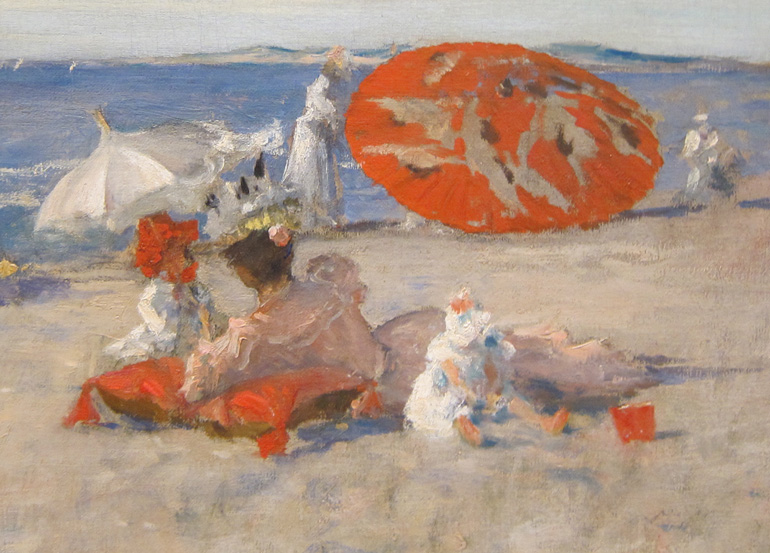Gotham Diary:
Jolly Case
13 December 2013
Was it premature, yesterday, to speak of Michael Anesko’s Monopolizing the Master as a delicious bonbon? Further reading has begun to give me the creeps. It’s a jolly case of the creeps, to be sure, but it is edged in black doubts. The story so far — about the handling of the literary (and epistolary) remains of Henry James — is so marked by suppressions, evasions, denials and distortions, all in the name of promoting the author’s position in the pantheon to one of preeminence, that it sounds rather like one of the Master’s ghost stories. Then there is “little B” — Theodora Bosanquet, the intelligent young stenographer who took James’s dictation in his later years and who, snubbed by the James family (they liked to think of her as a sort of charwoman, all the worse for being literate and prone to what they regarded as eavesdropping), convinced herself of a parapsychological bond with Henry James’s ectoplasm, which continued to dictate. Creepiest of all, though, is wondering whether I’ve been — to use one of James’s favorite horror-words, always put in scare quotes — “sold.” Oohing and aahing my way through a re-reading of The Golden Bowl — was I nuts?
This uncertainty is an anxious response to Anesko’s persistent sounding of the dissonance between, on the one hand, the aloofness from vulgar material concerns said, quite falsely, to be a shining virtue of the late novelist’s by almost all who survived him, and, on the other, James’s actual endless whining about money matters (suppressed from the early editions of his Letters), not to mention the commodification and branding of his oeuvre that was well underway by the time of his death. Anesko’s stated subject is the struggle for control over James’s legacy, which ended only a few decades ago, but his leading subordinate theme, it seems to me, is, simply, the packaging of Henry James. No one was more interested in this aspect of things than James himself; the Prefaces that he composed for the New York Edition of his novels and stories are presentation cases designed to make the fictions that follow them look even more elaborate and remarkable than they already do. It was hoped, by his publishers, that these prefaces would be both informal and intimate, sharing “trade secrets” in plain English and thereby inviting the reader to feel a familiarity with the author that might make his highly-wrought prose somewhat easier to digest. In fact, the Prefaces achieve this end, but by precisely the opposite means: never is the question, What the hell is this man talking about?, more pressing. One comes with relief to Chapter I of whatever has just been addressed. The Prefaces are as fancy as the most ostentatious jewel box, but they are also as difficult to open as the plastic cases in which we nowadays are forced to acquire so many articles of domestic utility.
Thus lurks the horror of sunk costs. What if it is nothing more than our unwillingness to acknowledge that we’ve made an awful mistake that produces the feeling of satisfied elation that accompanies the fourth or fifth re-reading of The Ambassadors?
Am I one of the doomed sybarites in the closing frame of Edward Gorey’s masterpiece, The Curious Sofa?
And I’m not even halfway through.
Bon weekend à tous!

